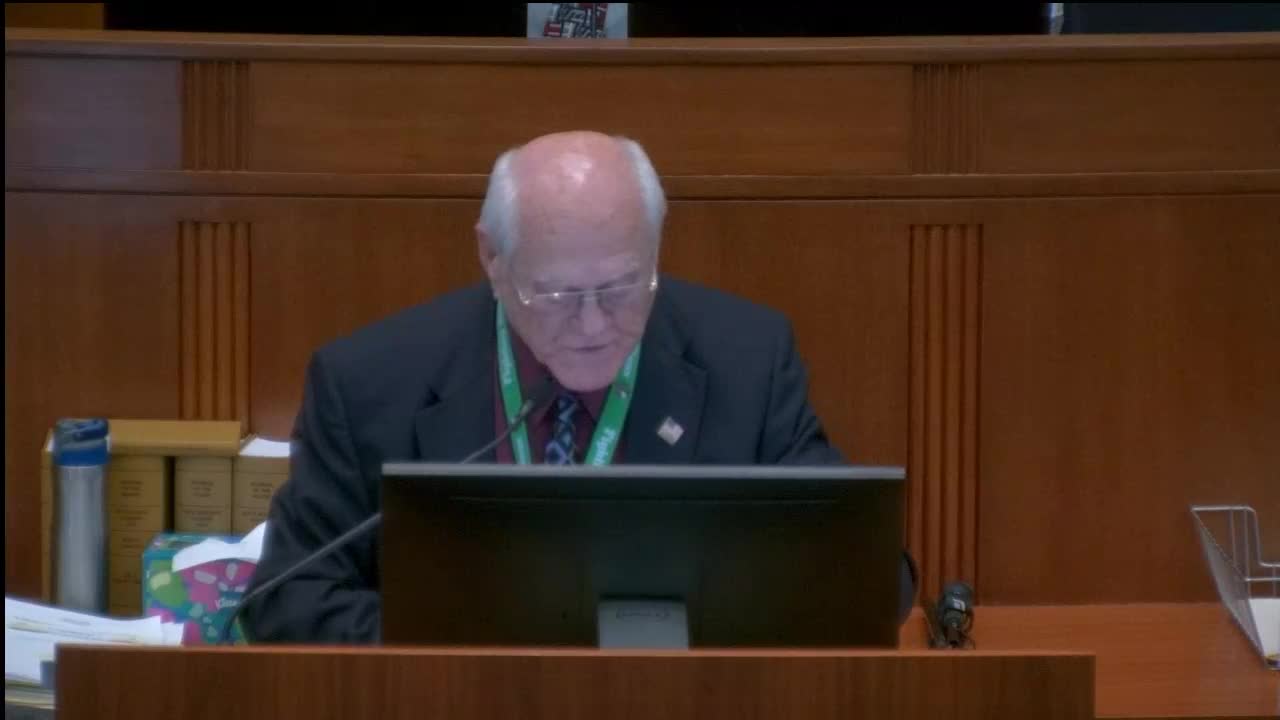House approves temporary expansion allowing Life Skills and Transition Center to accept certain children in crisis; critics warn of repeating institutional-era
Get AI-powered insights, summaries, and transcripts
Subscribe
Summary
Senate Bill 21-12 passed the House 65-25 to permit the Life Skills and Transition Center (LSTC) to accept narrowly defined non‑eligible minors for short-term stabilization, with a June 30, 2027 sunset and biannual reporting; debate centered on facility suitability, historical institutional concerns and a DHHS fiscal note.
Bismarck — The House approved Senate Bill 21-12 on final passage Tuesday, 65-25, authorizing the Life Skills and Transition Center (LSTC) to serve a narrowly defined group of minors who are legal North Dakota residents but are not eligible under current developmental-disability criteria when no other placement is available.
Representative Kaye Anderson, the bill carrier, told the chamber the change is intended to fill limited, urgent placement gaps for children with complex behavioral or psychiatric needs who, absent an option, may be housed temporarily in county offices or other unsuitable settings while case managers search for placements. “This bill codifies the center’s authority to serve and treat this narrowly defined and vulnerable population on a time-limited basis so that further study and analysis can occur,” she said on the floor.
The human-services committee recommended the bill with a unanimous 13-0 do-pass vote and the Senate amendment added a sunset date of June 30, 2027, and a requirement that the center report every six months to legislative management on the number of children served under the authority. The Department of Health and Human Services provided a fiscal note estimating additional general-fund expenditures of $87,970 for the 2025-27 biennium and the same amount for 2027-29.
Supporters described the LSTC youth-transition program as a temporary, home-like stabilization option that collaborates with school districts, human-service zones and families to return children to community settings when possible. Representative Kaye Anderson said the center would continue to prioritize individuals eligible under the developmental-disability waiver and that the expansion is meant only for rare cases.
Opponents urged caution. Representative Schneider spoke at length about the state’s history with the facility (previously known as Grafton State School), raised concerns about whether the center has sufficient clinical staffing — including resident psychiatrists — and questioned whether congregate care is the right solution for children with severe mental illness. Schneider said historical institutional problems informed skepticism about expansion and urged lawmakers to invest instead in community-based residential capacity.
Representative M. Ruby acknowledged constitutional concerns raised about the center’s statutory mission but said the committee and sponsors view the change as a narrow, temporary authority that will be accompanied by study and reporting to inform longer-term planning: “We added in that study because again, we know this is not the right way to go about this but it is a good kind of band aid until we really get a better assessment of the continuation of care across the state,” he said.
The Senate amendment’s sunset and reporting requirements were emphasized by the bill’s sponsors as mechanisms to ensure the policy remains time-limited and to provide data for future decisions about residential treatment capacity in communities. The House’s vote concluded floor debate that spanned testimony about placement crises in foster care, the difficulty of securing appropriate placements for children with overlapping behavioral-health and developmental needs, and historical and constitutional concerns about LSTC’s mission.
Ending — The bill passed 65-25 with a sunset of June 30, 2027, and semiannual reporting; the DHHS fiscal note estimated about $87,970 per biennium in additional general-fund cost for administration and services. Sponsors said the measure is a temporary stabilization option while the department and Legislature study longer-term, community-based solutions.
